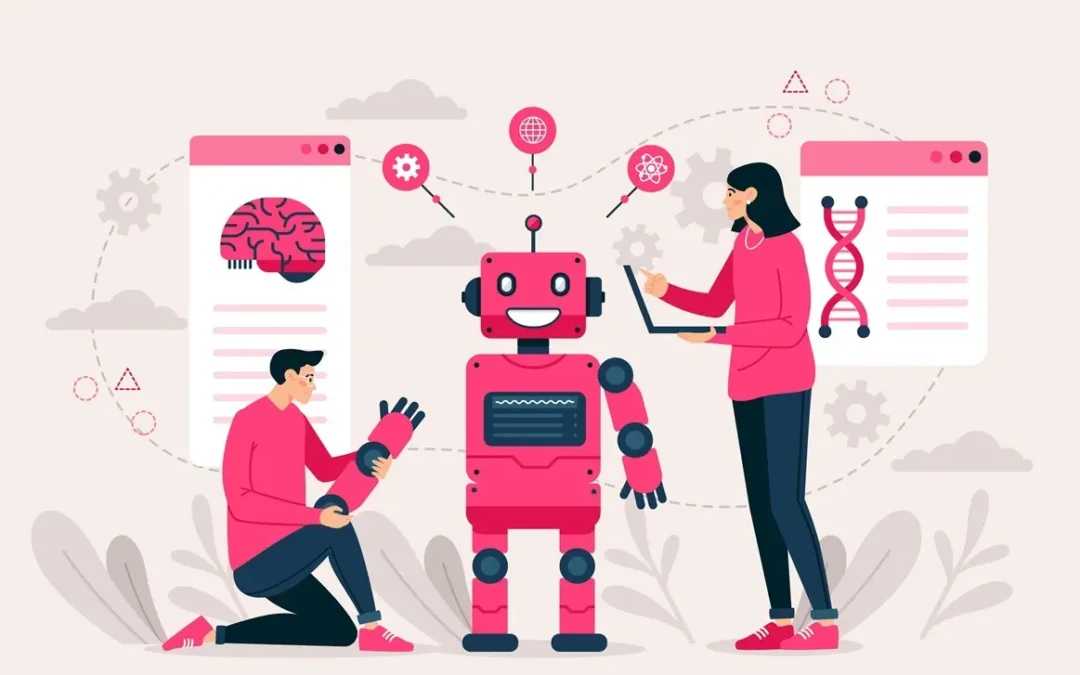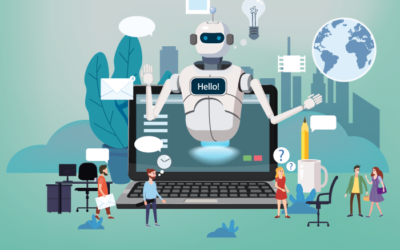AI advances across areas have unquestionably introduced a period of groundbreaking development. Simulated intelligence, a field incorporating AI, profound learning, and brain organizations, has broadened its impact into medical services, money, transportation, and horde different spaces. Its ability to automate, design acknowledgment, and navigate has sweeping ramifications.
Artificial Intelligence (AI) and Machine Learning (ML) have rapidly transformed various sectors, from healthcare and finance to education and entertainment. As these innovations keep on developing, they bring along plenty of moral difficulties that require cautious thought. Creating mindful man-made intelligence frameworks is pivotal to guaranteeing that these advancements benefit society while limiting expected hurts. This article investigates the moral ramifications of artificial intelligence and ML and diagrams procedures for making mindful man-made intelligence frameworks.
1. Bias and Fairness:
Quite possibly of the most squeezing moral worry in AI and ML is predisposition. Artificial intelligence frameworks are prepared on information, and assuming that the information utilized is one-sided, the artificial intelligence will probably sustain and try and enhance these inclinations. This can bring about the uncalled-for treatment of specific gatherings, especially underestimated networks. For instance, one-sided AI calculations in employment can weaken ladies or minorities, while one-sided facial acknowledgment frameworks can lopsidedly misidentify minorities.
To address inclination and advance reasonableness, designers should guarantee that the information used to prepare simulated intelligence frameworks is delegated and various. Furthermore, calculations ought to be routinely reviewed for predisposition, and there ought to be straightforwardness in how artificial intelligence frameworks decide. Executing decency-mindful ML procedures, for example, ill-disposed debiasing and reasonableness imperatives can likewise assist with alleviating predisposition in AI frameworks.
2. Privacy and Data Protection:
Simulated intelligence frameworks frequently require immense measures of information to successfully work. This raises critical protection worries, as the assortment, stockpiling, and handling of individual information can prompt possible abuse or unapproved access. For example, AI-fueled observation frameworks can encroach on people’s protection privileges, while information breaks can uncover delicate data.
Creating capable AI frameworks requires severe adherence to information security guidelines, like the Overall Information Assurance Guideline (GDPR) in Europe. Simulated intelligence engineers ought to focus on information minimization, guaranteeing that vital information is gathered and handled. Furthermore, procedures, for example, differential security and united learning can assist with safeguarding individual protection while permitting man-made intelligence frameworks to gain from information.
3. Transparency and Explainability:
AI frameworks, especially those in light of profound learning, are frequently thought of as “secret elements” on the grounds that their dynamic cycles are not effectively interpretable. This absence of straightforwardness can prompt doubt and moral worries, particularly in high-stakes regions like medical services or law enforcement, where understanding how choices are made is vital.
To foster dependable artificial intelligence frameworks, focusing on straightforwardness and explainability is fundamental. Artificial intelligence engineers ought to pursue making models that can be effortlessly perceived and deciphered by people. Procedures like logical artificial intelligence (XAI) can assist with making simulated intelligence frameworks more straightforward, permitting clients to figure out the thinking behind man-made intelligence choices. Also, clear correspondence about the abilities and constraints of artificial intelligence frameworks is imperative for building trust with clients and partners.
4. Accountability and Responsibility:
As AI frameworks progressively go with choices that influence individuals’ lives, inquiries of responsibility and obligation become more conspicuous. Who is mindful when the Artificial intelligence framework goes with a hurtful or mistaken choice? This is especially difficult in situations where AI frameworks work independently, without direct human mediation.
Laying out clear lines of responsibility is fundamental for the moral arrangement of Artificial intelligence. Designers, associations, and policymakers should cooperate to make structures that relegate liability regarding artificial intelligence choices. This could include laying out rules for human oversight, making components for change if there should be an occurrence of mischief, and guaranteeing that artificial intelligence frameworks are planned in light of security and unwavering quality.
5. Ethical AI in Autonomous Systems:
Independent frameworks, like self-driving vehicles and robots, present special moral difficulties. These frameworks should go with ongoing choices that can have huge results, including life-and-demise circumstances. For instance, a self-driving vehicle might have to pick between two possibly hurtful activities in an undeniable mishap.
To address these moral problems, designers of independent frameworks should integrate moral thinking into their artificial intelligence calculations. This includes programming simulated intelligence frameworks to follow moral standards, for example, limiting damage or regarding human independence. Drawing in ethicists, policymakers, and general society in conversations about the moral ramifications of independent frameworks is urgent for creating rules that reflect cultural qualities.
6: Future Trends and Challenges:
Anticipating future trends in AI is pivotal for envisioning the ethical landscape that lies ahead. As AI advances, considerations surrounding ethical dimensions must evolve as well. Artificial General Intelligence (AGI) and quantum computing present transformative potentials but also demand heightened ethical vigilance. The advent of AGI raises profound questions about value alignment and control. Intriguingly, AI ethics must be tailored to specific domains where its applications are profound. Domains such as education, healthcare, and climate science offer unique ethical challenges and opportunities. In education, the ethical use of AI spans personalized learning and academic integrity. In healthcare, the ethical implications of AI in diagnosis, treatment, and patient care are paramount. Climate science confronts AI’s role in mitigating environmental crises while ensuring ethical data collection and analysis.
The intersection of AI ethics and policy represents an evolving landscape. AI ethics plays an increasingly vital role in shaping public policy, both nationally and internationally. As AI’s influence transcends borders, the role of global governance in setting ethical standards and enforcing them becomes more pronounced. Policymakers must navigate a complex path to strike a balance between fostering innovation and safeguarding societal interests.
Conclusion:
The moral contemplations encompassing AI and ML are complex and multi-layered. As these advancements keep on forming our reality, it is significant to foster mindful Artificial intelligence frameworks that focus on decency, straightforwardness, protection, and responsibility. By tending to these moral difficulties proactively, we can bridle the maximum capacity of AI to further develop lives while limiting mischief and guaranteeing that Artificial intelligence serves the benefit of all. Joint efforts between artificial intelligence engineers, ethicists, policymakers, and society at large will be vital to accomplishing this objective.
Build Ethical AI Solutions with DevRaulic
At DevRaulic, we prioritize responsibility in innovation. Our web design and development experts are committed to creating AI and machine learning systems that are not only powerful but also ethically sound. Partner with us to develop AI solutions that respect privacy, fairness, and transparency. Contact us today to lead the way in responsible technology.Got time? Explore more!
Top 5 Mobile App Development Trends to Watch in 2026
A flat-design illustration of two IT professionals managing a cybersecurity interface featuring a central shield, password fields, and digital security icons.
The Next Generation of Quality Assurance Automated Testing in 2026
A flat-design illustration of two IT professionals managing a cybersecurity interface featuring a central shield, password fields, and digital security icons.
The Role of Generative AI in the 2026 Software Development Lifecycle
Three people with VR headsets analyzing a digital dashboard of business data, highlighting data-driven decision making.




